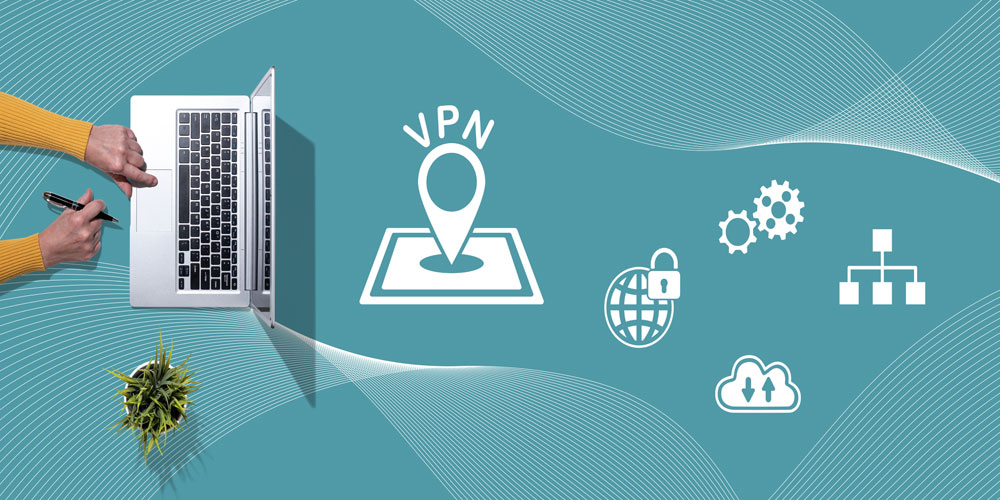What a VPN Can (and Can’t) Do for Online Privacy
With each passing day, more people are turning to VPN tools to enhance their digital lives. Whether it’s to protect personal data, access restricted content, or get a smoother gaming experience, VPNs have become a go-to solution for internet users around the world.
In just a couple of clicks, a VPN (Virtual Private Network) can boost your privacy, mask your location, and even help you access streaming libraries from different countries. But as VPNs grow more popular and more providers enter the market, it’s easy to get swept up in the hype. Some services promise the world, claiming they can make you completely anonymous online or turn your device into a digital fortress.
At TechRadar, where our team regularly tests and reviews VPN services, we’ve seen first-hand how powerful these tools can be, but also how they’re often misunderstood or oversold.
Are Users Clear on What VPNs Actually Do?
Based on the experiences reported by TechRadar, their team state that they consistently assess and evaluate VPN services. Through this, they have witnessed the significant capabilities of these tools, but also the common misconceptions and exaggerated claims surrounding them.
That’s a problem — because it’s not true.
While VPNs certainly boost your online privacy and can even add a layer of anonymity, they’re not a one-stop-shop for total invisibility. Let’s break down exactly what VPNs can and cannot do, so you can make more informed decisions about how to protect your digital footprint.
What a VPN Can Do
At its core, a VPN is a piece of security software designed to encrypt your internet traffic and hide your IP address. Let’s look at those two functions more closely.
1. Encryption for Privacy and Security
When you’re connected to a secure VPN, it encrypts your data, scrambling it into unreadable code. This means third parties like hackers, advertisers, your internet provider, or even government agencies can’t easily see what you’re doing online.
Encryption is especially important when you’re on public Wi-Fi, like at airports, hotels, or cafes. These networks are often not secure, and using a VPN here can protect you from cyber threats like man-in-the-middle attacks.
2. IP Spoofing for Anonymity and Access
Your IP address reveals a lot about you, your location, your device, and sometimes even your ISP. VPNs hide this information by routing your internet connection through a secure server in another location. This process is known as IP spoofing.
Masking your IP offers several perks:
- Access to Geo-Blocked Content: You can stream shows and movies from different countries by connecting to servers abroad.
- Bypass Censorship: A VPN can help you reach websites and apps that may be blocked in your region.
- Better Gaming Security: Some gamers use VPNs to protect themselves from DDoS attacks, reduce lag, and connect to game servers in other regions.
VPNs also help reduce your digital footprint, making it harder for companies and snoops to track your activity across sites. This added layer of privacy is a big reason why VPNs are now considered a staple for online security.
What a VPN Can’t Do
Despite all the advantages, it’s important to understand that VPNs are not magic tools for complete online anonymity. Here’s where their limitations start to show.
1. They Don’t Hide Everything
While VPNs encrypt your data and hide your IP address, they do not conceal all metadata, the digital breadcrumbs of your online life. Metadata includes:
- What device you’re using
- The size of data packets
- The time you accessed a site
- The apps or services you connected to
Even without content, metadata can be incredibly revealing. In the age of AI-driven analytics, it’s often used by law enforcement or data brokers to piece together user profiles.
At the time of writing, only a handful of VPN services are tackling this issue. NymVPN is one, leveraging advanced mixnet technology to obscure metadata. Another is Mullvad, which has developed DAITA, a tool aimed at reducing metadata exposure.
2. They Don’t Make You Invisible on Social Media
If you log into your real Facebook or Instagram account while connected to a VPN, you’re still leaving digital clues. A VPN doesn’t hide your identity from platforms where you’ve already shared personal information.
3. They Aren’t a Replacement for Antivirus Software
Many modern VPN apps come with built-in features like ad blocking or anti-tracker tools, but these are not substitutes for a dedicated antivirus. VPNs can help you avoid some threats, but malware, phishing scams, and trojans still require a proper security suite to detect and stop.
The Bottom Line
VPNs are incredibly useful tools that can significantly improve your online experience. They provide a higher degree of privacy, better access to restricted content, and added protection against cyber threats.
But they’re not all-powerful. VPNs can’t erase your digital existence, nor can they protect you from every type of online threat. To stay truly safe and private online, a VPN should be just one part of a broader digital security strategy, alongside strong passwords, two-factor authentication, antivirus software, and smart online habits.
So whether you’re a frequent traveller, an avid streamer, a competitive gamer, or just someone who values online privacy, a VPN is well worth using. Just know what it can, and can’t, do.
